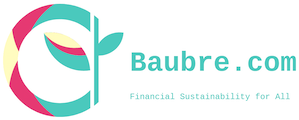What do we mean by “a financially sustainable life”?
For me it’s about being financially independent: having enough income and assets to live the life you want. It means not being dependent on anyone else: not on a partner to provide you with an income (even if you’re a full time caregiver), not on a job (jobs are never permanent), not on the government, not on family or others. It’s about being in charge of your own financial destiny. It’s about being master of your time.
If you are young, KiwiSaver may provide enough for a simple but adequate life in retirement but if you want more, like the ability to retire early or have more money in retirement, you may need to do something else as well.
To be sustainable you need an asset base to provide you with income throughout your lifetime. This asset base may be a property that provides you with rental income, it may be a business that provides you with profits, or shares or other investments which provide you with dividend and interest income.
Being in this position doesn’t happen overnight but it will happen over time, and that length of time will depend entirely on the amount of effort you are prepared to put in.
You’ve probably read stories of people who are millionaires at 22, usually through a start-up or through property. Start-ups are not for everyone but if you have a good idea and are prepared to back yourself then go for it!
You can make money on property by buying a rental property that has potential (either using equity in your own home) or staying at home (or renting cheaply) and using your savings as a deposit. You may have to do the property up, including tidying the section and some planting/ landscaping. You can do up a rental property relatively cheaply – the trick is to contain the costs (ie don’t go overboard) and do it quickly. You will save money if you can do as much of the work as you can yourself. But remember “time is money” and every day it’s not rented or sold is costing you interest.
Get it rented as quickly as possible for a market rent, have the property revalued, and use the increased equity to purchase another property. Keep going and soon you’ll have a number of properties and an income stream. For the first few years the rental income will only be covering the costs but this will improve over time as rents increase. For those that have made huge profits early on it is likely they have being buying up properties, doing them up quickly and selling them, then using the profits to buy more property.
Or you could steadily build an investment portfolio, following your shares closely and investing in areas that you understand. For example if you’re a chemist then you may realise that a new product will take off as you can see a high use for it. Some shares can increase by a significant amount over a short period, providing the shareholder with large profits. These can then be invested in little known companies, giving the opportunity to make huge gains (or huge losses). If you don’t have specialist knowledge, like most of us, then spread your investments across a range of shares and some will do well while others may not. The longer you are in the sharemarket though, general inflation should ensure that your portfolio increases in value. This is the principle of KiwiSaver.
Running your own business is another option but not for the faint hearted. It requires the ability to take responsibility for all aspects of a business, the human resources, health and safety, operational and financial. But this is a good way to earn a reasonable income and to build a business that may have some sale value in the future.
If this all sounds quite daunting and you love your job then absolutely stick with it – just remember to set aside money each payday for investments so that you can choose when you retire.
And when you retire, you can also start to use some of your capital as “income” or a source of retirement funds. For example if you have $250,000 excluding your home on retirement at age 65, then that gives you $10,000 or around $200 per week of capital to add to your pension for the expected 25 years until you turn 90. And that’s before considering any income or capital gains you’ll receive on those funds during the 25 years. Realistically you’ll have around $300 per week tax free to spend, in addition to your pension.
Other than the costs of rest home care (and many people fund this from the sale of their property or a unit they buy in a retirement village) older people don’t spend a lot!
Remember though that as you deplete your capital base you are also eroding your income from that capital base. So if you want to have a more even weekly income level then you can dip slowly into your capital at the beginning, leaving your capital to earn even more income.
Hopefully but that stage you will have built a financially sustainable life so you are able to enjoy your retirement and live it on your terms.
The information in this blog does not purport to be financial advice and no reliance should be placed on it. It is of a general nature only based on my experience as a Chartered Accountant in practice and specific advice should be sought for your particular situation.

